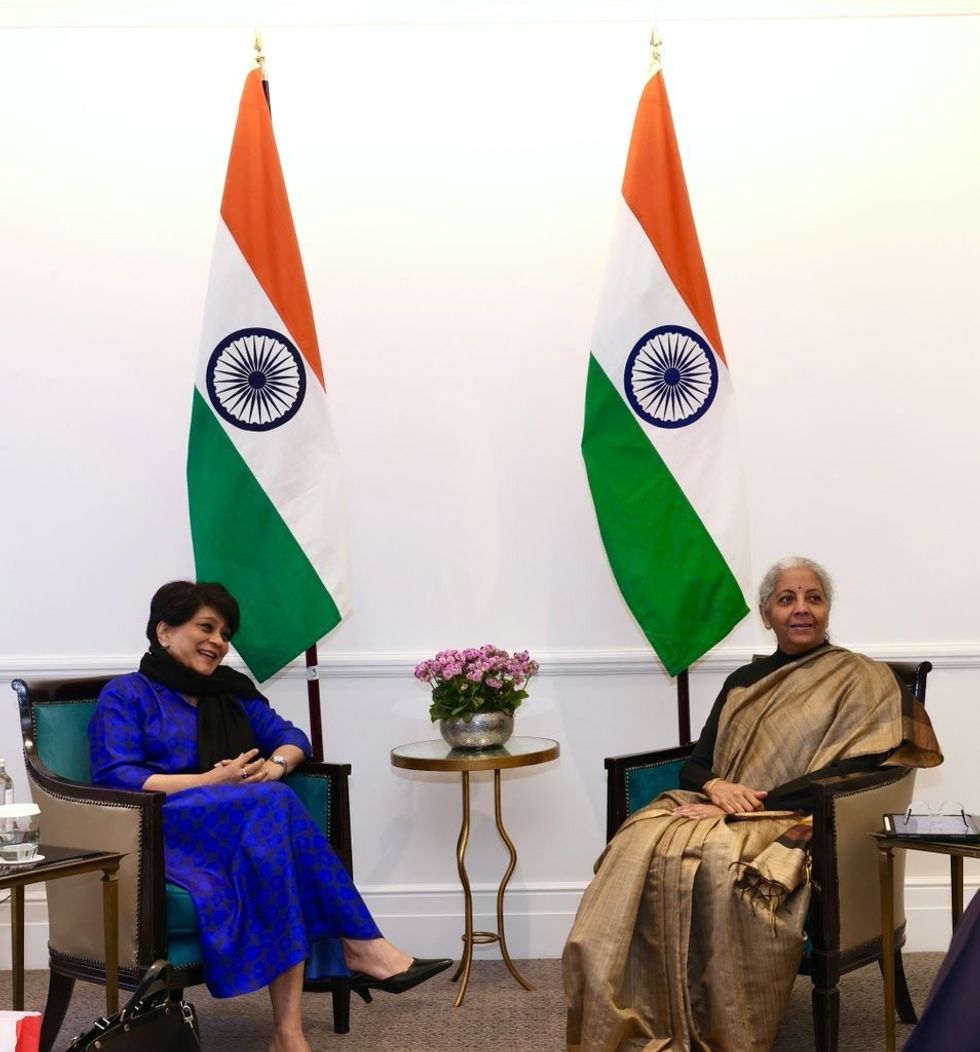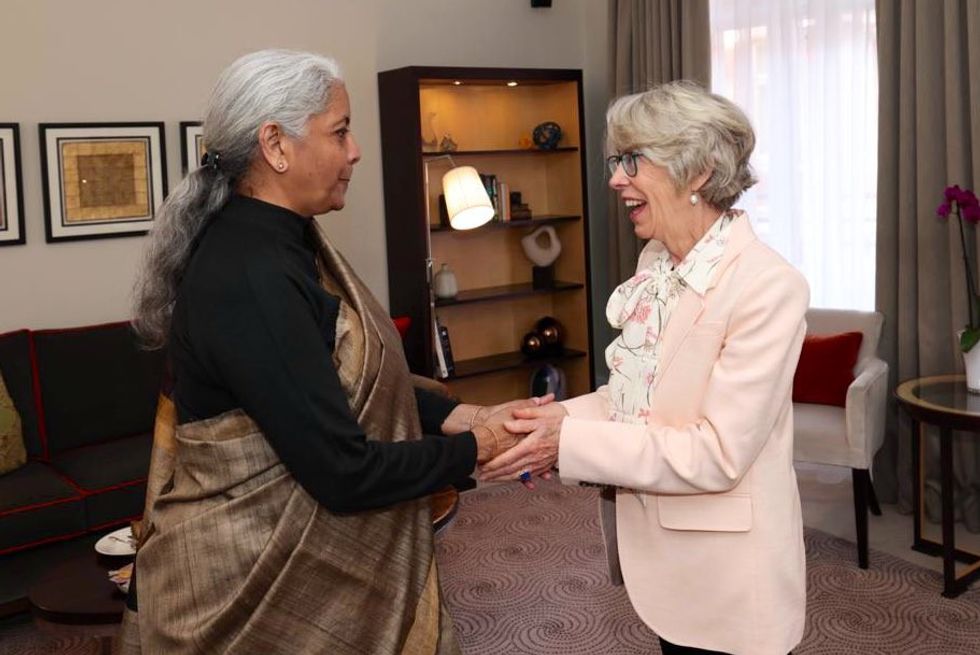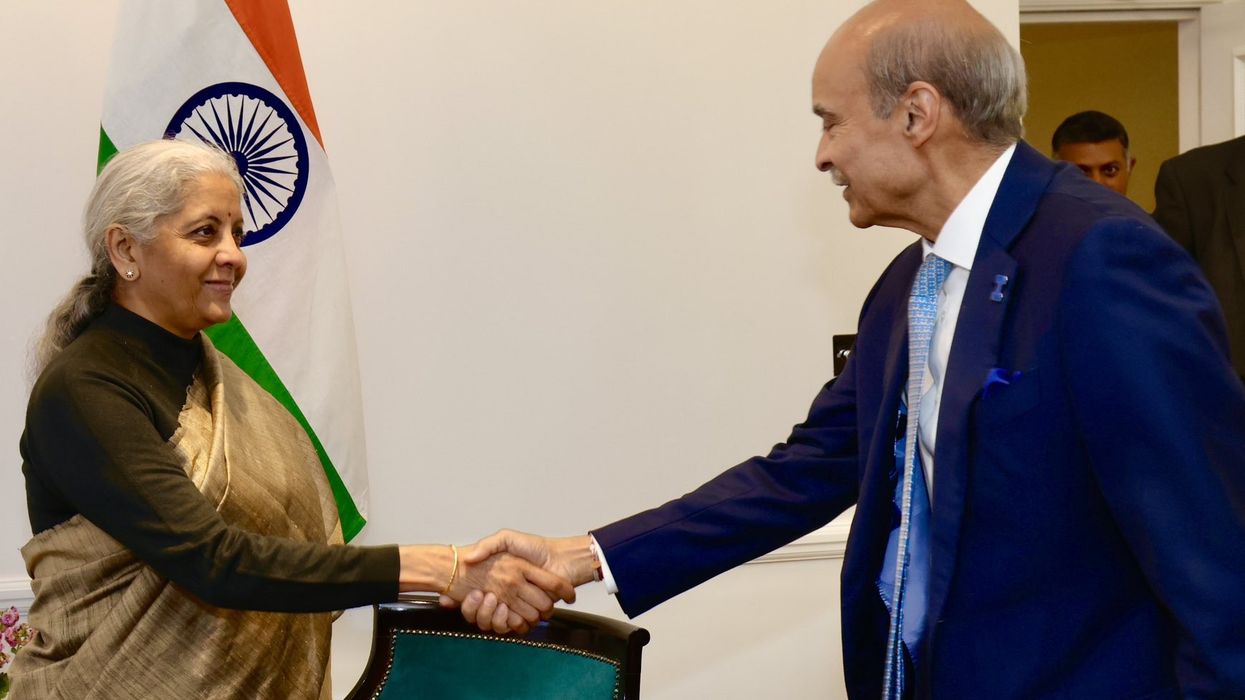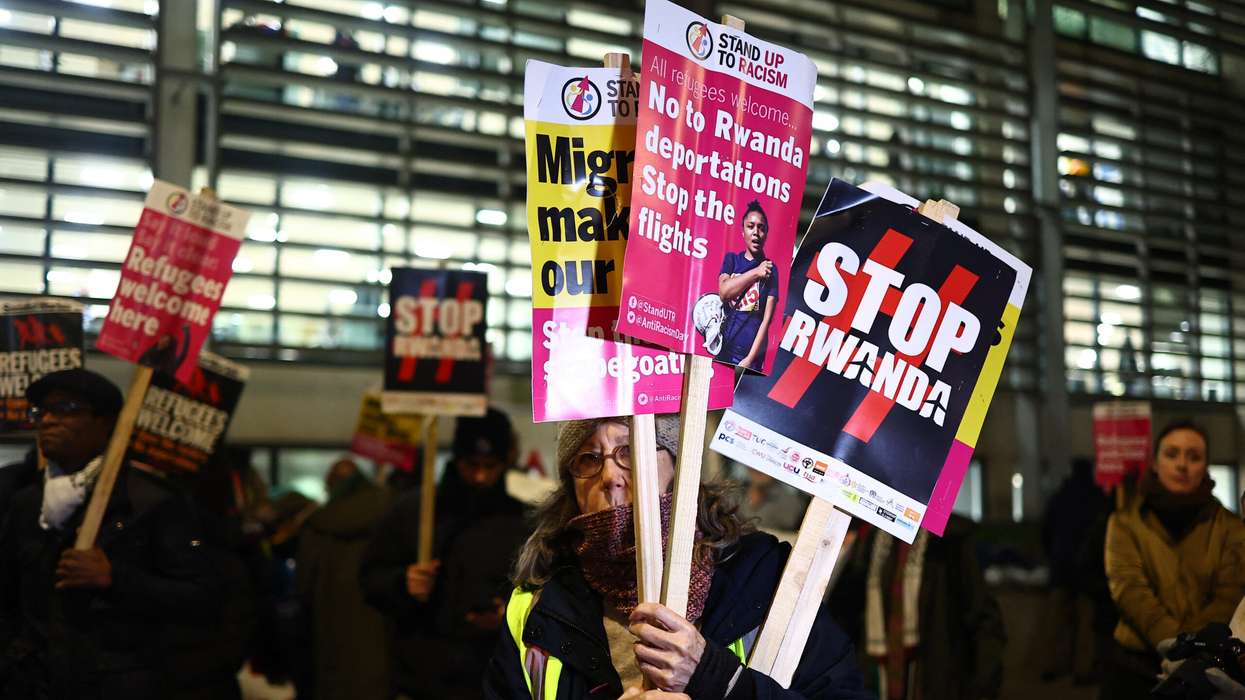INDIA’S finance minister, Nirmala Sitharaman, highlighted the country’s robust economic resilience during her visit to London this week, stressing domestic demand as a significant attraction for global investment in the face of rising international trade tensions.
At an event hosted by the High Commission of India in London on Tuesday (8), Sitharaman offered a confident assessment of India’s economic position amid evolving global trade dynamics.
“The world has seen depressed growth for over several years. Earlier, it was low interest for long and now it’s going to be low growth for long, and that’s not happy news for anybody,” she said.
Her remarks were made during a session titled ‘Opportunities and challenges for India’s quest to become a developed economy by 2047’.

Sitharaman said, “India has maintained its fastest-growing economy tag continuously now for five years and we still think that momentum may moderate a bit, but it will still be India who will keep that growth.”
The minister noted domestic consumption patterns, and said growth was “calibrated because of the consumption which exists domestically. It is backed by demand for global-standard goods and that is why globalisation since the 1990s has given India many opportunities.”
On trade relations with the US, Sitharaman acknowledged potential challenges but expressed optimism.
“The US is the leading trade partner for India. So, at a time when trade is going to be influenced by tariffs, measures which the US government are taking, we still will have to make sure that the strength India has in domestic demand as a big magnet – which can attract global supplies – must be sustained and boosted,” she said.

Strong domestic demand in India would continue to attract foreign direct investment (FDI) and international manufacturing interests, to satisfy the domestic market and for India as an export hub, the minister added.
Sitharaman positioned India as a key driver of future growth, saying, “We think India, and a few emerging markets, are going to be the engines of growth. The global depressed growth, if it has to pick up, will have to be because of these engines.”
The Indian minister arrived in London on Monday (7) evening on a six-day European tour that will also include a visit to Austria. Her UK itinerary began with the in-conversation session at the High Commission in partnership with the London School of Economics (LSE).
This is set to be followed by a 13th ministerial round of the India-UK Economic and Financial Dialogue (EFD) with her British counterpart, chancellor Rachel Reeves, on Wednesday (9), after Eastern Eye went to press on Tuesday.
The EFD represents a platform between the two nations, facilitating engagement through working groups and between respective regulatory bodies in the financial sector. These include investment, financial services, financial regulations, UPI interlinkages, taxation and illicit financial flows.
The key priorities for the Indian delegation during the EFD include cooperation in the IFSC GIFT City, investment opportunities, insurance and pension sectors, fintech and digital economy initiatives, and mobilising affordable and sustainable climate finance.
During her visit, Sitharaman delivered a keynote address at the India-UK Investor Roundtable. It was attended by CEOs from global organisations and key figures from across the UK financial sector, including pension funds, insurance firms, banks and financial services institutions.
She also co-hosted a roundtable with UK secretary of state for business and trade, Jonathan Reynolds.
The event, organised in partnership with the City of London Corporation, brought together senior management representatives from prominent pension funds and asset managers in the UK.
The ongoing India-UK Free Trade Agreement (FTA) negotiations featured prominently during these discussions.
Following her engagements in the UK, she will travel to Austria, where she is scheduled to hold meetings with Austrian finance minister Markus Marterbauer and the chancellor, Christian Stocker.
Sitharaman and Wolfgang Hattmannsdorfer, the Austrian minister for economy, energy and tourism, will co-chair a session with key Austrian CEOs to apprise them of existing and upcoming opportunities in India, aimed at fostering deeper investment collaboration between the two countries.




